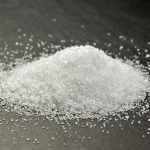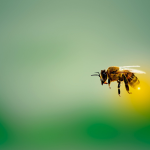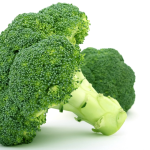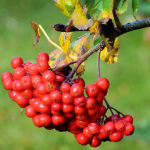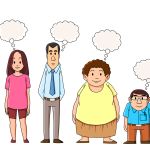Borlaug was a brilliant scientist and plant breeder, but the other secrets of his success were his perseverance and persuasiveness.
Food & Nutrition
Social justice advocates continue to demand that professions like medicine become more "diverse." Critics contend this development could bring unqualified physicians into the profession and jeopardize public health. Should we be worried? The FDA wants to label certain foods in the grocery store "healthy." It's an awful idea.
Panicked headlines recently warned that the popular artificial sweetener erythritol could increase heart disease risk. The study that generated these claims in no way supports that association. Dietary supplements are a multi-billion-dollar industry; they've also killed people. Do they need more regulatory oversight?
Bees are vital to our lives; without them, there would be no almonds, and few apples, onions, blueberries, carrots, or even, perish the thought, coffee. According to the Center for Biological Diversity, "more than half of North America’s 4,000 native bee species are in decline, with 1 in 4 species at risk of extinction.” The standard narrative in the words of Food and Water Watch is that “Bee colonies are in the midst of a massive die-off, thanks to dangerous pesticides that poison them and destroy their habitats.” A new study in Nature debunks that belief.
“Claims like 'healthy' on food labels can provide information to consumers to help them identify healthier food choices at a glance. Foods must meet specific nutrient-related criteria to use the nutrient content claim 'healthy.'” So begins the FDA’s quest to label what is healthy and what is not. Good luck with that fool’s errand.
The Wall Street Journal reports that the cost of eggs increased by about 60% in 2022, more than any other grocery store item on the shelf. Every day breakfast has become a source of anxiety as families look for affordable, healthy alternatives. And what to do about Easter Eggs for the children? The high price of eggs may be causing many families to rethink their eating habits.
“Artificial sweeteners have been widely introduced into the food chain … ” While perhaps helpful in reducing weight, could they unintentionally promote poorer cardiovascular outcomes? A new Cleveland Clinic study suggests yes. But that yes comes with a great deal of uncertainty.
The world's biggest consumer hoax is organic agriculture, which pretends to be what it isn't. And very successfully.
The American Academy of Pediatrics (AAP) has drawn fire for issuing new recommendations designed to reduce childhood obesity. The AAP's critics are deeply confused.
The simple formulation "calories in vs. calories out," somewhat explains weight gain or loss. A new study takes a deeper look at four components of calorie intake and how they change across various dietary patterns. Are tasty hyper-palatable foods the “Great Satan?”
Mara Altman wrote in the NYT that people of shorter stature are better for the planet. Mara claims that the natural resources needed to support a shorter person are less than for a taller person, even though the author acknowledges that shorter people live longer (which may negate the benefits of short stature). Since both genetics and environment determine a person’s height, it was not clear whether the author was advocating that: we manipulate the human genome to breed shorter people, we pair couples to include at least one short partner, or we restrict protein intake with a vegan lifestyle to reduce human stature.
The December 19 Consumer Reports headline, “Lead and Cadmium Could be in Your Dark Chocolate,” has chocoholics everywhere in great pain. But a closer look at the article shows that you may not have to give up your guilty pleasure.


